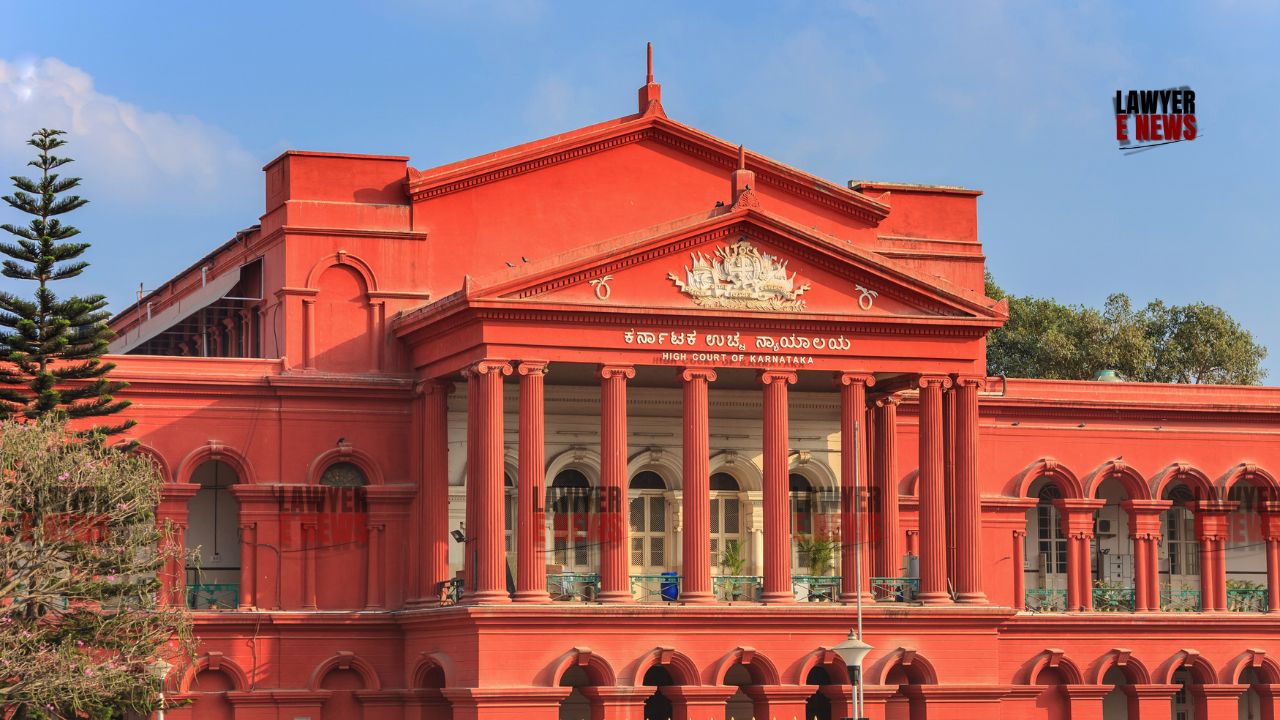-
by Admin
15 February 2026 5:01 PM



The Karnataka High Court quashed an order of the Special Court granting pardon to accused No. 1 under Section 306 of the Code of Criminal Procedure (Cr.P.C.) in the murder trial of Zilla Panchayat member Yogesh Goudar. Justice M. Nagaprasanna held that the pardon process was vitiated by gross procedural irregularities, including the impermissible reliance on a statement recorded under Section 164 Cr.P.C. after the trial had already commenced.
The Court directed the trial court to conclude the proceedings within two months while allowing the co-accused's petitions challenging the pardon.
"Recording of Section 164 Cr.P.C. Statement After Trial Commences is Patently Illegal": High Court
The High Court observed that the Special Court directed the recording of accused No. 1’s statement under Section 164 Cr.P.C. despite the trial having already commenced. Justice Nagaprasanna clarified:
“Section 164 Cr.P.C. applies only before the commencement of inquiry or trial. Any action contrary to this mandate, especially directing a Magistrate to record the statement of an accused under Section 164 during an ongoing trial, is patently illegal.”
The judgment emphasized that such statements, if relied upon for granting pardon, render the entire process unlawful.
The case pertained to the gruesome murder of Yogesh Goudar, a Zilla Panchayat member, on June 15, 2016, allegedly due to political rivalry. The case, initially investigated by the Dharwad Suburban Police, was later handed over to the Central Bureau of Investigation (CBI) following a government order in 2019.The CBI filed three supplemental charge sheets, implicating several accused, including former minister Vinay Kulkarni (accused No. 15). During the trial, accused No. 1, Basavaraj Shivappa Muttagi, applied for pardon under Section 306 Cr.P.C. to turn approver. The trial court granted the pardon on October 30, 2024, based on his confession recorded under Section 164 Cr.P.C.
The co-accused challenged the pardon, alleging procedural irregularities in its grant.
The Court ruled that a second application for pardon is maintainable only if there are changed circumstances. In this case, accused No. 1 cited threats to his life as a new factor justifying a fresh pardon request. The Court held that:
“The second application for pardon is akin to a second bail application—it is maintainable only when fresh or additional facts emerge.”
Justice Nagaprasanna unequivocally held that recording a Section 164 Cr.P.C. statement during an ongoing trial is contrary to the statutory mandate. Citing the Supreme Court’s ruling in Babu Verghese v. Bar Council of Kerala, the Court reiterated:
“If an act under the statute is to be performed in a particular manner, it shall be performed in that manner alone.”
The Court found that the Special Court’s reliance on the illegally recorded Section 164 statement to grant pardon was a significant procedural error.
“Evidence of an Approver Can Only Be Taken After Grant of Pardon”: High Court
The Court highlighted the procedural safeguards laid down in Rampal Pithwa Rahidas v. State of Maharashtra, emphasizing that the evidence of an approver (including examination and cross-examination) can only be recorded after pardon is granted under Section 306 Cr.P.C. The High Court held that the trial court’s reliance on the Section 164 Cr.P.C. statement prior to granting pardon violated these safeguards.
Addressing the objection raised by the CBI that co-accused cannot challenge a pardon order, the High Court clarified that while co-accused cannot challenge the merits of a pardon, they can question procedural irregularities in its grant. Justice Nagaprasanna cited State of U.P. v. Kailash Nath Agarwal to conclude:
“Co-accused have a right to challenge the procedural legality of the grant of pardon, but not its merits.”
The High Court also criticized the prosecution for contributing to delays in the trial. Noting that the case had been pending since 2016, the Court directed the trial court to conclude proceedings within two months.
“The prosecution’s repeated failure to produce witnesses and a proper list has caused unwarranted delays in a case of grave public importance,” the Court observed.
The Court dismissed allegations by the CBI that the co-accused’s petitions were delaying the trial, citing trial court orders that attributed the delays to prosecution lapses.
The High Court quashed the trial court’s order granting pardon to accused No. 1, directing the trial court to consider a fresh application for pardon, if filed, by following due procedure.
“The order granting pardon is vitiated by procedural irregularities, stemming from the impermissible reliance on a Section 164 Cr.P.C. statement recorded after the trial commenced,” the Court held.
The trial court was ordered to conclude the trial within two months, ensuring all parties cooperated with the proceedings.
Date of decision : December 4, 2024
